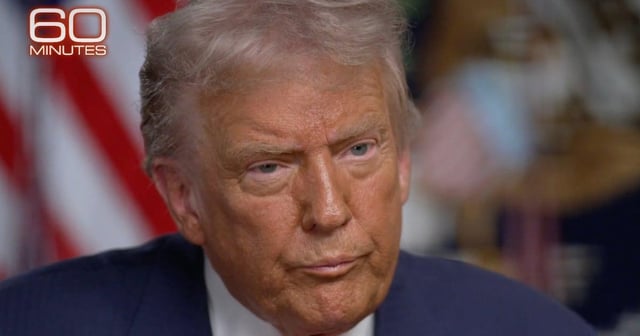Did ’60 Minutes’ Censor the President? The Controversy Over a Missing Moment
Sunday night’s broadcast of ’60 Minutes’ featuring an interview with the President has ignited a firestorm of controversy. A key segment, reportedly showcasing the President’s reaction to questions regarding corruption allegations, was noticeably absent from the final edit. This has led to accusations of censorship, raising crucial questions about journalistic integrity and the public’s right to see unfiltered news.
But was it censorship, or a legitimate editorial decision? The answer, as always, is likely more nuanced than a simple yes or no. Let’s delve into the details of what happened, the potential motivations behind the edit, and the implications for the future of political interviews.
What Was Cut, and Why Does It Matter?
According to reports, the segment in question involved a line of questioning concerning alleged corruption within the President’s administration. Sources claim that the President became visibly agitated and defensive during this portion of the interview. This reaction, the “tantrum” as some have called it, was considered by many to be a revealing moment, offering insight into the President’s mindset and how he handles criticism.
The disappearance of this segment raises several concerns. Firstly, it deprives viewers of potentially crucial information. A politician’s reaction to tough questions can be just as informative as their prepared statements. Secondly, it fuels suspicion about media bias. By omitting this moment, CBS opens itself up to accusations of protecting the President or sanitizing the interview for political reasons.
However, it’s important to consider potential justifications for the edit. Time constraints are a common reason for cutting footage in television programming. Perhaps the segment was deemed too repetitive, or the producers felt it detracted from the overall flow of the interview. Without knowing the exact content of the cut segment, it’s impossible to definitively determine whether the decision was justified or not.
The Ethics of Editing: Finding the Balance
The role of editing in journalism is a complex one. On the one hand, editors have a responsibility to present information clearly and concisely. This often involves cutting out irrelevant or redundant material. On the other hand, editors must be careful not to distort the truth or manipulate the narrative by selectively omitting information.
In the case of political interviews, the stakes are even higher. These interviews are often scrutinized for any signs of bias or manipulation. The public relies on journalists to act as impartial observers, providing a fair and accurate portrayal of the individuals they interview. When segments are cut, especially those involving potentially damaging information, it inevitably raises questions about the editor’s motives.
The key is transparency. If CBS had provided a clear and convincing explanation for why the segment was cut, it might have mitigated some of the criticism. Simply ignoring the controversy only fuels suspicion and erodes public trust in the media.
Consequences and the Future of Political Interviews
The fallout from this incident could have significant consequences. CBS’s reputation has taken a hit, and the incident has provided ammunition for critics who accuse the media of bias. The long-term impact on the relationship between the President and the network remains to be seen.
More broadly, this controversy raises questions about the future of political interviews. Politicians are increasingly wary of being ambushed by tough questions, and they may be more reluctant to grant interviews to news organizations they perceive as hostile. This could lead to a decline in the quality and quantity of political coverage, ultimately harming the public’s ability to make informed decisions.
To avoid similar controversies in the future, news organizations need to be more transparent about their editorial decisions. They should also be prepared to defend their choices, providing clear and compelling justifications for any cuts or edits they make. Only by upholding the highest standards of journalistic integrity can the media maintain public trust and ensure that political interviews remain a valuable source of information.
Moving Forward: Demanding Transparency and Accountability
The ’60 Minutes’ controversy serves as a potent reminder of the importance of media transparency and accountability. Whether the decision to cut the President’s “tantrum” was driven by legitimate editorial concerns or political motivations, the lack of clear explanation has fueled distrust and speculation.
As consumers of news, it is our responsibility to demand better. We must hold news organizations accountable for their editorial choices and insist on transparency in their reporting practices. Only by doing so can we ensure that we are receiving a fair and accurate portrayal of the events that shape our world.
Ultimately, the future of political journalism depends on the ability of news organizations to earn and maintain public trust. And that trust can only be built through a commitment to transparency, accuracy, and unwavering dedication to the truth.
